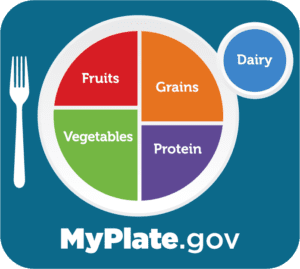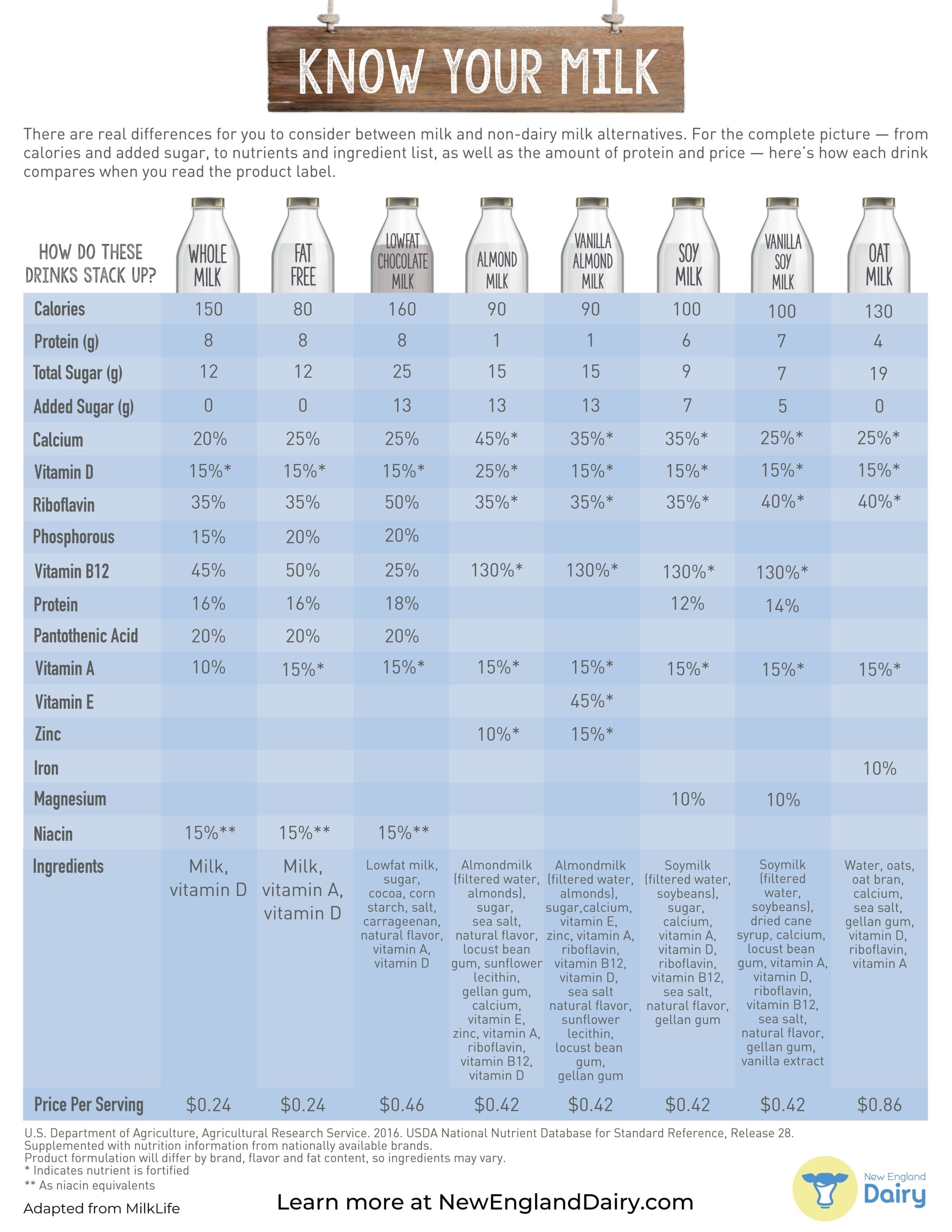
At nearly halfway through the year, now can be a good time to gauge how your 2022 diet or eating plan is holding up. Eating a healthy, sustainable diet is an admirable goal, but with so many different dieting trends and plans, it can be hard to choose one and stick with it.
From pescatarian to intermittent fasting to flexitarian – Google the words ‘nutrition advice’ and you’ll be bombarded with endless articles about the latest diets, health tips, and food and recipe recommendations. In a sea of often contradicting headlines, how do you trust the information being shared when one source seems to refute the points of another?
If you’re here reading our blog post on NewEnglandDairy.com – you understand that we stand with and support the important role milk and dairy foods play in a balanced, nutritious diet. We work for dairy farmers, so of course, we’re telling you that dairy is good for your health. Yes, we can almost see some folks rolling their eyes. But before you close the browser window, there are good reasons why the information we’re telling you can be trusted.
We recommend you eat and drink dairy because science and research also recommend dairy as part of a healthy diet. We at New England Dairy, as well as our dairy cohorts across the country, are governed by the United States Department of Agriculture. Our information and programs are grounded in the research being done at the national level.
We share that information to say, at the end of the day, you the reader deserve choices. You deserve to eat and enjoy foods that nourish you and your family. And it can be hard to know what information to trust, to get that job done.
So, Who to Trust?
There are influential people out there who recommend limiting milk or dairy, yet here we are, sharing all the research backing dairy as part of a healthy diet; so how do you know who to trust?

MyPlate pictured above is based on a science report from independent experts advising the USDA and trusted by the large majority of nutritionists and health professionals. It is also based on the Dietary Guidelines for Americans, 2020-2025 (DGAs). The DGAs reflect the current body of nutrition science and provide a customizable framework for healthy eating that can be tailored and adapted to meet personal, cultural, and traditional preferences. The DGAs:
- Form the basis of Federal nutrition policy and programs
- Support nutrition education efforts
- Guide local, state, and national health promotion and disease prevention initiatives
- Inform various organizations and industries
The law requires the Dietary Guidelines reflect the current body of nutrition science. The folks who review that science include nationally recognized scientific experts in nutrition and medicine from many universities and institutions. This Committee of scientific experts is asked to look at nutrition science collectively to inform its report, rather than using individual scientific studies or personal testimonies.
Understanding where your information is coming from, and what the organization or author’s personal views on a particular food or food group, can ultimately help you cut through the ‘fog’ of nutrition information out there to make the best decisions possible for feeding you and your family throughout the rest of 2022.
Natural vs. Processed
There is an abundance of competition for space on your grocery store shelves, plant-based products being one of those competitive players. In the past, the word milk represented one thing, now, you the reader, have many alternative options to weed through.
But the facts are facts, and we stick to facts:
“I’ve seen this uptick in almond alternatives, oat alternatives and people are getting the message that those are healthier than milk, but in fact, those are highly processed foods, and they don’t have the same nutritional value of milk,” explains Dr. Katherine Tucker Ph.D., a Nutritional Epidemiologist from UMass Lowell, who’s been studying diet and health outcomes throughout her career. She’s contributed to more than 400 articles in scientific journals, meaning she knows a thing or two about foods and health.

At the end of the day, real cow’s milk is a natural, minimally processed food packed with 13 important nutrients. It’s easily accessible and affordable compared to many other alternatives you’ll find on the shelf.
“I have friends who are drinking almond milk and they say, oh this is great it stays fresh for two weeks, and I say, oh my goodness, look at all these ingredients. There’s a reason this stays fresh, this is not real food. Real food is what keeps you healthy,” adds Dr. Tucker.
Balance & Variety
Some folks out there believe that the key to healthy nutrition is removing certain foods from your diet. Other experts however believe that a healthy diet is centered around balance, variety, enjoyment, and nutrition.
“It’s a balance of nutrients that matter. You can’t just flood your body with calcium and get the optimal bump. Things work together in the food matrix. With milk, you’ve got a perfect food matrix for bone. You’ve got the protein need to maintain bone,” explains Dr. Tucker,” You’ve got the calcium, we all know that and it’s one of the foods that got the bonus of vitamin D. We don’t get enough vitamin D, almost everyone is deficient. But dairy is also giving us that potassium and magnesium that we’re all very short on. This is why dairy is set at three servings per day in the dietary guidelines. Other pseudo-milks do not have this nutrient profile.”
The Real Deal
The key to living a healthy life is to turn to trusted sources for health and wellness information based on science and facts. We’re not asking you to read hundreds of peer-reviewed research articles, that’s the job of the nutrition experts at New England Dairy. We’re asking you to think about the source of information and if it’s based on widely-accepted science.
The world of nutrition is always evolving, and it can be hard to know where to turn for those facts. We hope that our commitment to understanding and communicating the science will make us your source to turn to for the rest of this year and beyond.



